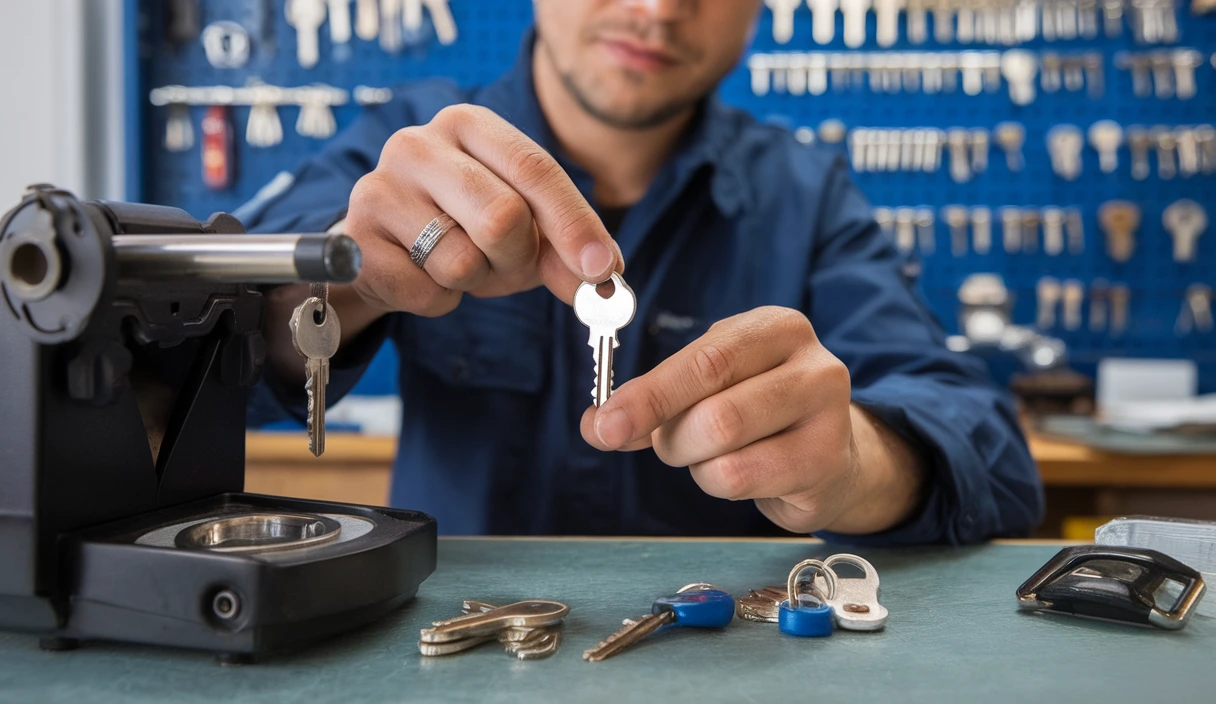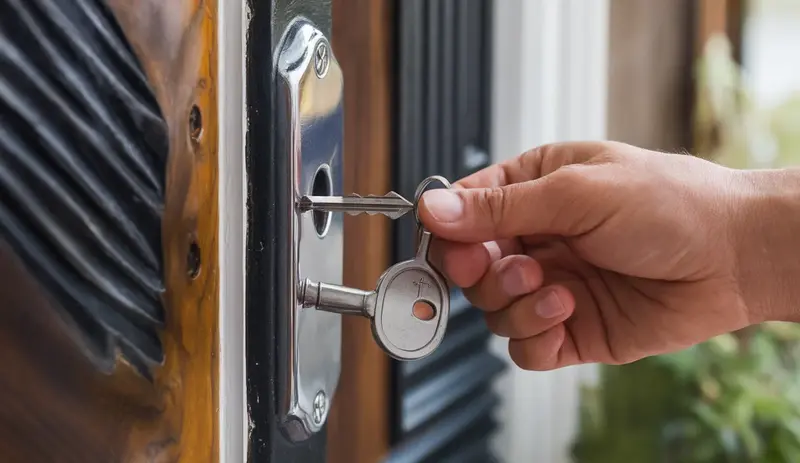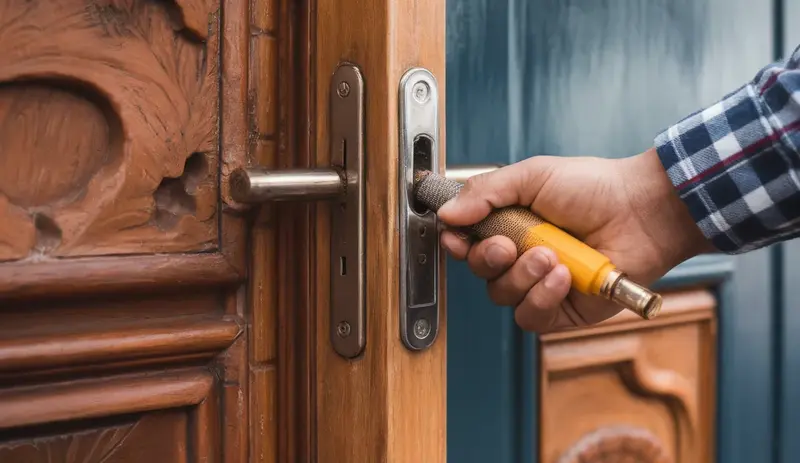
You’ve probably seen those property managers or superintendents with a massive keyring, flipping through keys like a card dealer. Ever wonder how they can access every single room or space without carrying around 50 different keys? That’s the magic of a master key system – and it’s not just for businesses anymore.
Whether you own a multi-unit apartment, manage an office building, or just want more convenient access around your own property, master keys can be a total game-changer. But how exactly do they work? More importantly, can a local locksmith actually create one for you? Let’s break it down.
What Exactly is a Master Key System?
A master key system is much like the organizational chart of security access. Consider a building where certain people require unrestricted entry, while others need only limited access. This hierarchy is exactly what master key systems create. At its heart, the system provides for different keys to open several locks—all with different levels of permission.
Let’s take a practical look at this. In a basic system, you have a master key that opens every lock in the place, and you have individual keys that only open a few locks, given to people who need access to whatever’s behind those few locks (think department managers). A good way to imagine this is as a pretty straightforward corporate structure, but for physical access instead of digital.
With these systems, managing the key becomes highly strategic. Organizations can dictate, with pinpoint precision, who goes where and when, erecting flexible and exacting layers of security. It’s about more than just locking and unlocking. It’s about creating access controls that are as smart as these systems.
Can Any Locksmith Create a Master Key?
Not all locksmiths have the ability to create a master key system. This isn’t something that can be accomplished with basic locksmith training. To put it simply, if a locksmith can design a master key system, they have to have specialized knowledge in several areas, like lock mechanics, key cutting, and security infrastructure. If you want a master key system, visit Doctor Lock for expert services.
This field, it goes without saying, demands a high degree of skill and artistry. To be a master key specialist—to do the job well—requires an understanding of not just the working parts of common locks but also the hidden mechanisms that make them unique. It entails knowledge of the latest lock technologies—what works, what doesn’t, and why—and an uncanny ability to make a key that will unlock a particular lock but not any other (within reason).
Above all, these professionals must have the mindset of security architects. They don’t merely make keys; they engineer access solutions that safeguard humans and valuables. They’re required to blend technical wizardry and strategic gumption.
You May Like to read: Can a Locksmith Install a Peephole in My Door in 2025?
How Much Does a Master Key System Cost?
Master key systems come with a cost that varies greatly depending on how complex the system is. To give a few examples, for a small business with ten locks, you might invest anywhere from $500 to $1,500. For a larger commercial environment, we’re talking about in excess of $2,000 and quite possibly up to $10,000 or more.
Price is influenced by several key factors: the number of locks, the complexity of the access hierarchy, and the quality of the lock hardware. In high-security environments, like hospitals and government facilities, you can bet that lock-access systems are going to be more sophisticated and far more expensive than what you might find in a typical home.
Key insight: Don’t merely focus on initial expenses. Think about value over the long haul. A master key system that is designed well can cut security costs and management time to a minimum.
Residential vs. Commercial Master Key Scenarios
Master key systems for residences are quite different from those for commercial applications. In a residence, one might set up a system where the occupants have a master key, while limited access is granted to cleaning services or maintenance personnel, who might be given sub-master keys.
The complexity in commercial settings can be much greater. A big office building might use a keyed system that allows certain individuals to access multiple floors while also employing different kinds of locks and keys for varied access levels—like those maintenance staff, building managers, and general employees might need—to the same facility. A school might use some similar access arrangements and also allow certain kinds of “keys” to work only on specific locks for particular types of rooms, like classrooms.
Potential Risks and Security Considerations
Key systems that use a master key aren’t completely secure. The bigger the system, the more potential trouble spots there are. If a master key is lost or stolen, you can bet that somewhere, someone is using it to get in.
Regular key audits, key management protocols, and high-quality lock hardware are what professional locksmiths recommend for maintaining secure access control. Periodically changing locks and maintaining strict key distribution records are also critical parts of secure access control.
The most secure master key systems balance convenience with protection, allowing an organization to create an access control system that meets its unique needs. For professional consultation, check out our Google Maps location.
While master keys sound complex, a good local locksmith can make the process smooth and straightforward. Reinforce the practical benefits and remind readers to always choose a reputable, licensed professional. Encourage readers to get quotes from multiple locksmiths and ask specific questions about their master key experience before making a decision.


